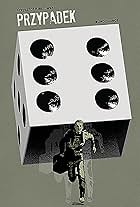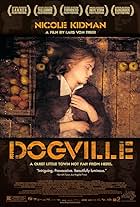Welcome to the new profile
We're still working on updating some profile features. To see the badges, ratings breakdowns, and polls for this profile, please go to the previous version.
Ratings149
hofnarr's rating
Reviews86
hofnarr's rating
There were two required courses my freshman year in high school that I recall for one or two reasons - "Comparative Economic Systems" I remember for the example of the price of hula hoops in regards to supply and demand and fads, et cetera. If the book is still being published a reference to the Coen brothers "The Hudsucker Proxy" would be a good update. As for "Comparative Political Systems" I vaguely remember something about the Kwakiutl Indians, but what remains sharply in focus 40 years later was the result of the assignment to watch this film.
If it seemed somewhat fantastic [3. imaginary or groundless in not being based on reality; foolish or irrational: fantastic fears] then, 40 years later it's not so unrealistic. While "death panels" are not mentioned per se in the film, cutting off medical aid to folks over 65 can be problematic if you're diabetic - as was the character of Senator Quincy George played by Emmett Evan Heflin Jr, and, as the trivia section notes "This TV movie was Van Heflin's final performance. He died of a heart attack three months before the original broadcast..." BTW - to avoid a spoiler don't read all of the trivia - I've truncated it so the spoiler doesn't show.
I don't want to write much more without seeing it again - memories of films forty years past may not be entirely reliable - but it made quite an impression on a young teenager raised in an extremely conservative environment. I've read most if not all of Philip Kindred Dick's short stories written in the 1950's and wonder at how prescient he was with many of them. "The Last Child" was the first produced script by Peter S. Fischer, to my knowledge. He won an Edgar Allan Poe Award for an episode of "Murder, She Wrote" and several Emmy nominations for other of these episodes. He would go on to work with the director, John Llewellyn Moxey, on a number of the "Murder, She Wrote," episodes.
If it seemed somewhat fantastic [3. imaginary or groundless in not being based on reality; foolish or irrational: fantastic fears] then, 40 years later it's not so unrealistic. While "death panels" are not mentioned per se in the film, cutting off medical aid to folks over 65 can be problematic if you're diabetic - as was the character of Senator Quincy George played by Emmett Evan Heflin Jr, and, as the trivia section notes "This TV movie was Van Heflin's final performance. He died of a heart attack three months before the original broadcast..." BTW - to avoid a spoiler don't read all of the trivia - I've truncated it so the spoiler doesn't show.
I don't want to write much more without seeing it again - memories of films forty years past may not be entirely reliable - but it made quite an impression on a young teenager raised in an extremely conservative environment. I've read most if not all of Philip Kindred Dick's short stories written in the 1950's and wonder at how prescient he was with many of them. "The Last Child" was the first produced script by Peter S. Fischer, to my knowledge. He won an Edgar Allan Poe Award for an episode of "Murder, She Wrote" and several Emmy nominations for other of these episodes. He would go on to work with the director, John Llewellyn Moxey, on a number of the "Murder, She Wrote," episodes.
I saw this when it first came out, and just finished seeing it now on DVD - 22 years later it's lost none of its charm. The music by Mark Knopfler is wonderful; it's just a little bit of a shame that more people know the music from the CD soundtrack than know the film. The interplay of the village folk, from the baby whose parentage is only obliquely implied (if that) to the nameless motorcycle rider to the old man at the ceilidh dance wistfully reminiscing "Four generations of working that farm, digging and draining and planting - years and years and it comes to this . . ." and the his friend asks him how much he's been offered. "One and a half million in cash, plus 2% of the relocation fund, and a share in the oil field revenues," takes you into the flow of the town life, and you really don't want to leave.
Ah yes, strange times indeed.
From the unexpected fate of Trudy (or Harry) the rabbit to the final resolution of just what *will* happen to the town, director Bill Forsyth's light touch and pacing lets you slide into the rhythm of this small Scottish seaside town - not quite a Brigadoon, but my revisiting it after 22 years found it just as fresh and delightful.
I must admit, though, that I'm still not sure what to make of Moritz, the unconventional "therapist" in the first part of the film; he does serve to highlight eccentricities that Happer has, and there are are some amusing bits with him, but it took me out of the film somewhat. I found myself wondering more what might have inspired Bill Forsyth's writing here than carrying me along with the story.
Ah yes, strange times indeed.
From the unexpected fate of Trudy (or Harry) the rabbit to the final resolution of just what *will* happen to the town, director Bill Forsyth's light touch and pacing lets you slide into the rhythm of this small Scottish seaside town - not quite a Brigadoon, but my revisiting it after 22 years found it just as fresh and delightful.
I must admit, though, that I'm still not sure what to make of Moritz, the unconventional "therapist" in the first part of the film; he does serve to highlight eccentricities that Happer has, and there are are some amusing bits with him, but it took me out of the film somewhat. I found myself wondering more what might have inspired Bill Forsyth's writing here than carrying me along with the story.
No matter where a Jewish family may live in the world, and what other languages they may speak, theological tradition pretty much mandates that Hebrew will be spoken. This film takes a look at the family life of a Jewish boy preparing a bar mitzvah. It's a nice snapshot slice of life: Rafael is followed through his preparation, the Moré assuring him that *everyone* gets nervous, and that he'll do fine. Rafael's father runs a plumbing/kitchen/bath fixtures store, and the More' - and others in the film - have him relay messages of need and/or thanks for jobs; his mother's dealing with seating of different families that don't want to be seated with others; Rafael's other brother razzes his younger sister about a friend who thinks she's hot; his mother asks him about his session with the cosmetologist for his acne.
There may be a tangential comment on the economy of the country, as the other brother mentions that he got a gift of $100 from a family who gave Rafael $50; the mother says "Times are different now." In a 13-minute piece, you get a nice overview of the family and the event - although I'm not quite certain that the closing scene is a standard feature in bar mitzvah's! This was shown along with the Uruguyan film WHISKY as part of the Global Lens Initiative 2005.
There may be a tangential comment on the economy of the country, as the other brother mentions that he got a gift of $100 from a family who gave Rafael $50; the mother says "Times are different now." In a 13-minute piece, you get a nice overview of the family and the event - although I'm not quite certain that the closing scene is a standard feature in bar mitzvah's! This was shown along with the Uruguyan film WHISKY as part of the Global Lens Initiative 2005.




















